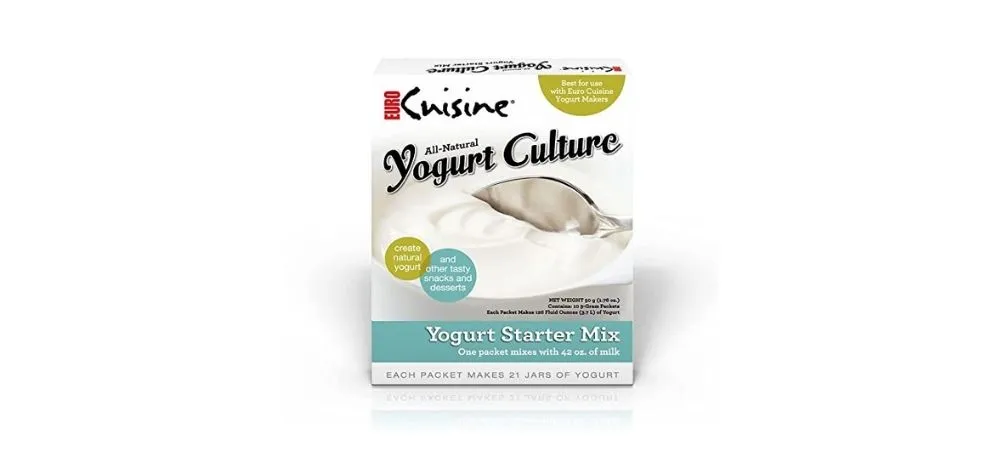Yogurt is a classic example of food invention. The way yogurt was discovered and its evolution over time is interesting. Even its name are fascinating stories. Yogurt is widely recognized as an excellent source of calcium. It makes sense since people have been making this fermented milk product for at least 10000 BCE. It wasn’t until much later, however, that people started adding fruit to yogurt and calling it “fruit-on-the-bottom.”
Who Invented Yogurt?
There’s evidence that yogurt was a staple in many ancient Asian civilizations. Genghis Khan and his Mongol army, among others, enjoyed the creamy food, which was believed to give them strength and energy on the battlefield.
According to Wikipedia, the origin of yogurt has traces from Mesopotamia around 50000 BC.
Evidence from ancient pottery shows that Neolithic people were using pots to store milk. As a fermented food, yogurt was a great way to preserve milk, since the acidity slows the growth of harmful bacteria.
Yogurt has been well-known food in Greece and Rome for more than 2,000 years. Since 800 BCE, it’s played a crucial role in Mediterranean cuisine.
It’s also claimed that the Mughal emperor Akbar liked to add cinnamon and mustard seeds to his yogurt.
In ancient Turkey, the term “yogurt” was used to refer to thickened milk. It is thought that yogurt was produced in Turkey as far back as the 6th century BCE, and it is derived from the Turkish verb “yogurmak.”
The earliest known use of yogurt was by Central Asian nomads who kept their extra goat’s milk in containers made out of animal stomachs to keep it fresh. Some milk within these skins, to their amazement, grew thick and tart over time. It also survived being in the hot sun for a surprisingly long amount of time.
This is due to the fact that yogurt contains good bacteria, which became activated when the milk came into contact with animal stomach bags. This created an inhospitable environment for undesirable germs.
How Yogurt was Commercialized?
In 1905, the bacteria strain Lactobacillus bulgaricus was discovered by Bulgarian microbiologist Stamen Grigorov. This strain sucessfully ferments the milk into yogurt. In 1919, Danone was the first company to commercialize yogurt in Barcelona, Spain.
Related Posts:
- What are the different types of yogurt?
- What is Aussie Style Yogurt?
- How to make coconut yogurt?
- How long homemade yogurt last?
- How to strain yogurt at home?
Is Yogurt Turkish or Greek?

There are many different theories on the origin of this popular food, but none is entirely conclusive. Many historians think that yogurt was first cooked by the Turks in around 700 A . D . when they ruled most Eastern Europe and Asia Minor. Others believe that it was created by Greek nomads, who used skin from a sheep or goat to ferment milk in and preserve it.
Despite these theories, there is an excellent possibility that the idea of yogurt came from various cultures throughout history. For example, some historians believe that the Chinese made a similar dish as early as 3000 B . C . using mares milk. At that time, people were already aware of fermentation processes, so it is possible that they made yogurt this way and didn’t name it as such.
There is also a great possibility that the origin of yogurt can be traced back even further to ancient Sumer, now present-day Iraq. The earliest evidence of yogurt being used dates back to 6000 B . C . It was found buried in the tombs of Egyptian pharaohs. It is believed that the ancient Egyptians used this food as part of their religious practices and even considered it a gift from the gods.
During ancient times, yogurt was made by placing milk in animal skins or pottery jars and leaving them outside to ferment in warm weather. As time passed, people began using clay pots instead of animal skins to make them easier to carry around. In addition, they started using water buffalo milk because this produced a higher fat content which made the yogurt taste better.
Once people began selling their homemade versions of yogurt, there was no going back! This popular food spread throughout Asia and even made its way into Europe in the late 19th century. Although it was not always easy to find, this pungent and tasty food became more popular after World War II and eventually became extremely widespread throughout the world.
Today, yogurt is enjoyed by lovers of all kinds of foods who use it as a condiment, appetizer, or even dessert with a wide variety of different flavors. There’s truly no end to the combinations you can try, from Greek yogurt to Thai coconut milk yogurt!
Who invented Greek yogurt?
The first person credited with creating Greek yogurt was Kyriakos Filippou who began making it back in 1960. At the time, he was selling in the local store via his family-run business. He eventually started the company called Fage which specializes in Greek yogurt and his yogurt had become a national phenomenon!
Initially, he used to send his yogurt via airway and thereafter he took the daring decision of starting the production in New York.
FAGE in Greek refers to ‘eat’. Regardless, Fage yogurt is now one of the most popular brands globally, with many different varieties to choose from. If you ask Greeks, they will tell you that this brand truly separates Greek yogurt from regular yogurt and makes it something special!
Frequently Asked Questions
Which Country Invented Yogurt?
Turkey is credited for the invention of yogurt. People also believe that the word yogurt has its turkish roots, where ‘yog’ means ‘condense. It is believed that the Turkish did not consume milk unless it become sour which they termed as ‘yoghurd’.
Where Does Greek Yogurt Come From?
Originating in Greece as Yiaoutri, it’s a Meditarrean-style yogurt that is eaten as soft savory. Some credit the FAGE to introduce it to the world while other believes that Choabni is responsible for popularizing the Greek yogurt to next level.
Is Greek Yogurt Actually from Greece?
No! Do not deceive by its name as Greek yogurt is not actually from Greece.











